#eid after hajj
Explore tagged Tumblr posts
Note
i was just minding my business like scrolling to find new fics to read since i was so so bored and while i was finding some delicious fics (ahem ahem: yandere big brother bakugou x little sister reader) ur post suddenly idk the word (lumitaw (its a filo word)) and i was screaming and immediately dropped what i was supposed to read to read yours 😭😭😭
i got the worst memory ever to exist because i keep forgetting their names but i think i'll grasp them once the next chapter is out (hopefully) but yeaaah!!! baris reminds me of abbas in a way but ig he's a bit more.. brute yk what im talking about????? ig he's ok..
OH! and i have a theory about the painting, y/n's face getting smudged maybe because baldwin or SALAUDDIN decided to smudged it to forget how they look due to heartbroken (prob not baldwin,, but i feel like salauddin would do that ??) i guess im getting married again 😔😔 i feel like im betraying my pookie salauddin 💔💔💔🙏🙏 BUT ANYWAYS THANK YOU FOR THE UPDATE SNOW!!!! AMAZING AS ALWAYS!! can't wait for the next one already!! 😭😭😭 i think i'll send more of my thoughts if something crosses over my mind (prob when im in the shower)
ooohh i like your theory(portrait pictures at the end). i like it a lot. expanding on it:
Baldwin would probably cause the painting to be smudged because he's kissing it, kissing your lips, drunk off his mind, tears streaming down his cheek as he spends hours sitting in front of it, talking to the painting as if u still exist, begging u to come back from heaven, even apologising for all he's done, just please- come back, angel...
Meanwhile Salauddin would probably be staring at your portrait angrily. He understands why you had to leave but.... you couldnt have told him where you were goinh? Do you not think he couldve protected you? He wouldve used his whole army, gathered Muslims from all around the world to protect you. Did you... did you not have the least bit faith in him? deep down, he knows u did this to prevent a war between him and baldwin but.... Salauddin wouldve gone to war for you. Happily. This wasnt your decision to make alone. Now, he stands in front of your portrait, he has it in his palace now, and he doesnt say voice it out like baldwin, but he has complaints. HE keeps them inside, mentally talking to you, telling you just how stupid you were for sacrificing yourself, for jumping off that stupid cliff. How u shouldve just- just asked him for help ONCE, and he wouldve fought until his last breath if it meant keeping u safe. In his mind, u sacrificed yourself to protect Baldwin from murdering innocent muslims or anyone else u wouldve seeked help from.
And now? All Salauddin can do is pray for you. He wakes up late into the night and sits on the prayer mat, making dua for you for hours, reading Quran for you, has animals slaughtered on eid on your behalf, even doing charity and hajj (pilgrimage) on your behalf, just so that you can have more good deeds in your name. He still has the chess board u gifted him, but he's stopped playing chess. He never played the game again, it was only a painful reminder of you. The one person who he could never beat.
As for your painting, why it was smudged? Salauddin didnt want anyone to see your beauty, thats why he kept the portrait hidden in his room, but then he feared that one day when he's not around anymore, someone will see you. So, he used a rag soaked in turpentine to smudge your face, but couldnt do more than just the bottom half of your face. He thought that was fine, after all, thats how u did often appear when you were around, wearing a niqaab, a veil that covered your face.
Now that he looks at your eyes, he realises his mistake. He heard the wise tell him-
"Eyes are the windows to the soul."
He now knows it to be true.
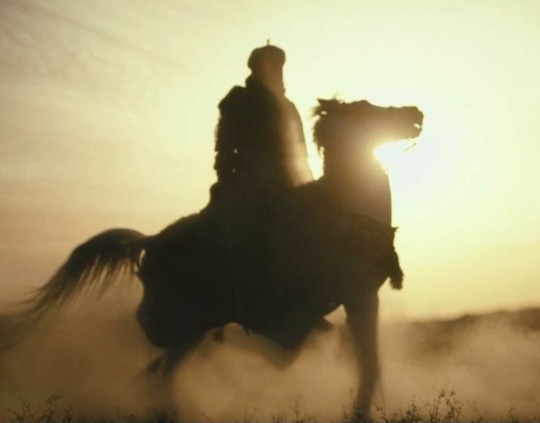
This is what I think the portraits look like:

Notice that this is the earrings Salauddin gifted Y/n when she was in the market with him:
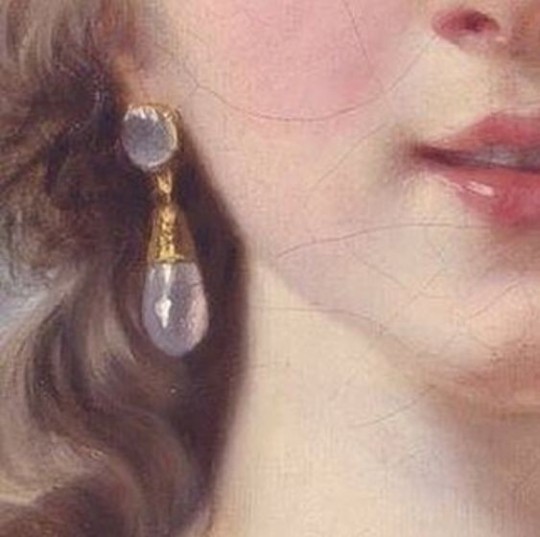
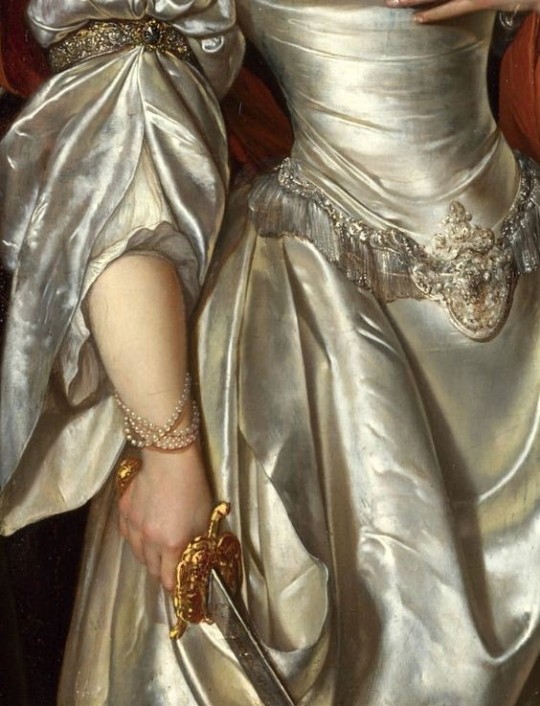

How Baldwin's been:

#yandere baldwin#yandere Salauddin#king baldwin x reader#baldwin#baldwin x reader#king baldwin iv#king baldwin x you#Salauddin#Salauddin x reader#time traveller au#yandere x reader#yandere x#yandere x you#male yandere
456 notes
·
View notes
Text
dhul hijjah - a second chance after ramadan ♡
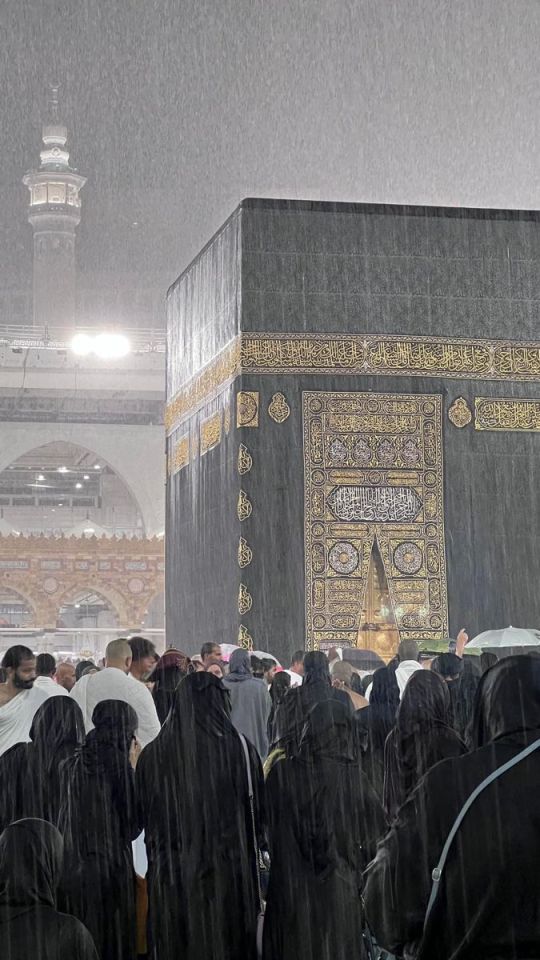
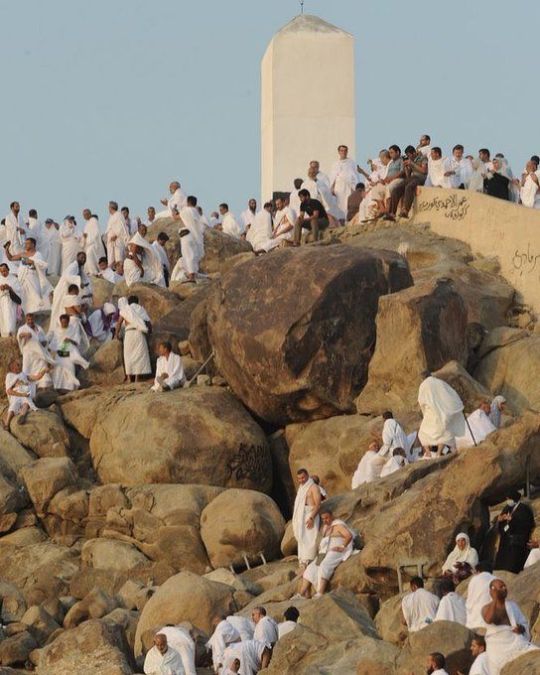
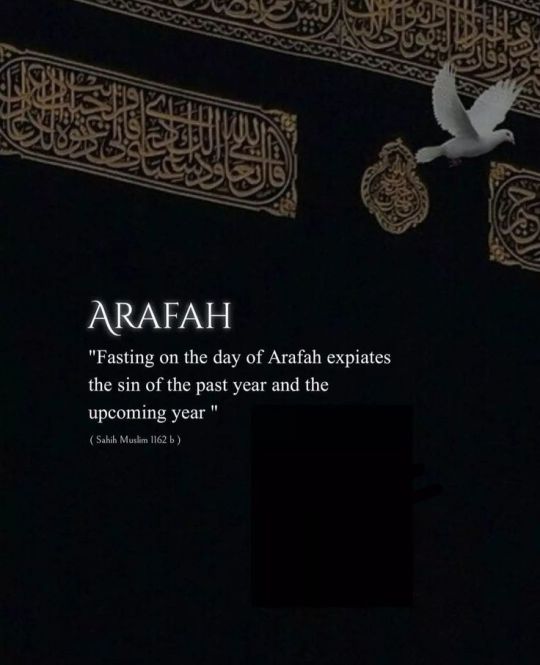
what is dhul hijjah?
meaning 'the month of the pilgrimage' as many muslims go on hajj in this time, dhul hijjah is the twelfth and final month of the islamic year. the first ten days of this month are the best days of the entire year. yes - even better than ramadan:
it was narrated by Ibn Abbas that the Prophet ﷺ said: “There are no days during which righteous deeds are more beloved to Allah than these days,” meaning the (first) ten days of Dhul- Hijjah" - Sunan Ibn Majah 1727
these ten days encompass the day of Arafah, Hajj, and Eid ul-Adha
this month, we remember prophet Ibrahim (as) and how he was told by Allah to sacrifice his son, Hadrat Ismail (as). he took hadrat Ismail (as) on top of mount Arafat for the sacrifice, and just as he was about to sacrifice Ismail (as), Allah told him to stop as He was only testing him to see if he was truly obedient and willing to sacrifice everything for Allah's sake. the 9th day of dhul hijjah is the day of Arafah, commemorating this event.
we also remember how Allah told Ibrahim (as) to leave Ismail (as) and his wife, Hadrat Hajar, in a desert - which, today, is present day makkah.
this month is therefore about obedience, surrender and sacrifice for Allah سُبْحَٰنَهُۥ وَتَعَٰلَىٰ.
depending on the sighting of the moon, dhul hijjah is expected to begin friday 7th june!
what to do in these first ten days?
even if you're not going for hajj, you should use these blessed days for extra righteous deeds and worship, especially on the day of arafah - the 9th day (which falls on 16th june this year, Insha'Allah) - the day before eid.
FASTING
it is a sunnah to fast the first 9 days of dhul hijjah. if you won't fast all 9 days, then it's best to prioritise the 9th day, the day of Arafah. this is because the prophet ﷺ said: “Fasting on the Day of ‘Arafah expiates for the sins of the year before and the year after.” (Sunan Ibn Majah 1730) however, unless you're going for hajj and you're actually at Afarah, then you cannot as it's forbidden to fast while on the mountain.
DHIKR
it's extremely important to increase your dhikr in this time. recite the tasbeeh, tahmeed, takbeer and tahleel often: tasbeeh - subhanallah (Holy is Allah) tahmeed - alhamdulillah (all praise belongs to Allah) takbeer - Allah Akbar (Allah is the Greatest) tahleel - laa ilaha ill-Allah (there is no God except Allah) Allah said “remembrance of Allah indeed is the greatest virtue” (29:46) - it brings you closer to Him, you feel more certain in His powers that He can remove any hardship which makes the heart feel less anxious, Allah becomes your Friend, you'll become successful (remember Allah often so you may prosper” (8:46), it cleans your heart, it protects you from harm, Allah becomes pleased with you. it truly is the greatest virtue.
also recite istighfar (astagfirullah) and repent for your sins
the best dua to recite on the day of Arafah itself is:
laa ilaaha ill-allaahu, waḥdahu laa shareeka lah, lahul-mulku wa lahul-ḥamdu, wa huwa ‛alaa kulli shay’in qadeer - (None has the right to be worshipped except Allah, alone, without partner. To Him belongs sovereignty and all praise and He is over all things omnipotent)
OTHER INCREASED ACTS OF WORSHIP
do extra voluntary acts of worship (nawafil, sunnah prayers, duha prayers)
read a lot of Qur'an
listen to the Qur'an more
send many, many salutations to the Prophet ﷺ (durood sharif!)
practice gratitude. what are you thankful for?
pray tahajjud
give sadaqah / donate to a charity. make sacrifices!
be kind!
read translation and commentary of surahs
listen to islamic podcasts/read islamic books to increase your knowledge
memorise a surah
talk to Allah!!!! pray!!!!
try and increase your acts of worship throughout the 9 days and especially on the 9th day, the day of arafah, which is the day before eid! (16th june Insha'Allah, depending on where you are in the world)
10th day - eid ul adha
on the tenth day of dhul hijjah (eid), our beloved Prophet ﷺ used to give Qurbani (a sacrifice) every year to remember Ibrahim (as) almost sacrificing his son for Allah سُبْحَٰنَهُۥ وَتَعَٰلَىٰ's sake. muslims sacrifice animals all over the world to follow this sunnah, and donating qurbani is encouraged for every Muslim who is financially able to do so (this can be done online)

may Allah سُبْحَٰنَهُۥ وَتَعَٰلَىٰ make it easy for us to utilise these blessed and best 10 days to the best of our abilities, forgive us of our sins, draw us ever nearer to Him and allow us to become His best friends, Allahumma Ameen ♡
#islam#dhul hijjah#arafah#muslim#religion#sabrgirl#ramadan#allah#quran#prayers#islamic#muslims#arafat#jummah
180 notes
·
View notes
Text

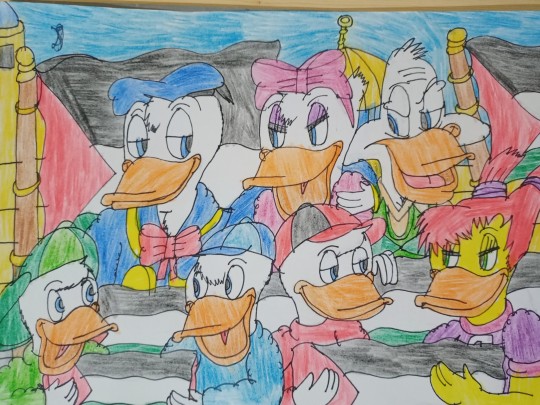
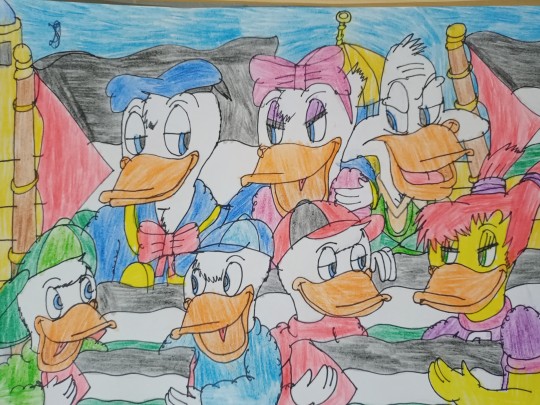
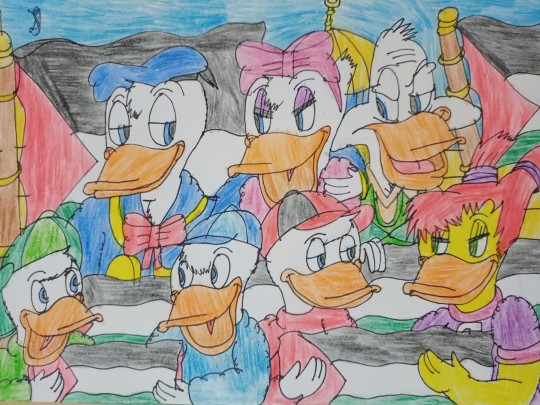
Donald Duck, Daisy Duck and Drake Mallard with their kids support Palestine in Jerusalem - Happy Eid al-Adha - Happy Father's Day! - Duck comics, Ducktales and Darkwing Duck - Duckverse
I wish all Muslims who celebrate a happy Eid! That is, Eid al-Adha. In addition to Eid al-Fitr, one of the biggest Muslim holidays when the Hajj begins and the day of offering to God as well as the remembrance of the deceased. On those days, sacrificial meat is cut, especially meat related to Eid al-Adha. It is celebrated because on that day, Abraham was supposed to sacrifice his son at God's command until the Archangel Gabriel (Jibril among Muslims) intervened, so Abraham (Ibrahim among Muslims) instead slaughtered a ram as a thanksgiving sacrifice to God the creator. An animal (mainly a lamb) is sacrificed and the meat itself is sacrificed and divided into three parts. The family keeps one third; the second third is given to relatives, friends and neighbors; the third third is given to the poor and vulnerable.
Today is also Father's Day, which is celebrated every third Sunday in June in America and around the world, while in some countries, Father's Day varies from country to country. So Happy Father's Day to all fathers, uncles and grandfathers.
On this occasion and because of current events, I drew Donald Duck, Daisy Duck and Drake Mallard with their children holding Palestinian flags. I am not in the habit of promoting anyone like this, nor am I on anyone's side but the right side, but a great tragedy is happening in Palestine, especially in Gaza where people are dying en masse, especially women and children. And not only Muslims, but also Palestinian Christians (Catholics and Orthodox), with whom I most identify and sympathize. However, many people send through their mobile phones what is happening and most people are engaged to help them as well as about the crimes committed against them. I'm just against such injustice so I drew this, of course they are in Jerusalem where they defend the Golden Dome of the Rock as well as Al Aqsa, important Muslim temples because that's where Muhammad ascended to heaven. A certain group of orthodox and ultra Jews want to destroy it in order to build their temple, and for me as a Christian, this is unacceptable, especially considering that their messiah is a Christian Antichrist, but that is a long story to tell. Certainly, after Gaza, the next goal is Jerusalem and the expulsion of Muslims from that city as well as Christians, and I am against that and that injustice, and I am asking people to get involved in this and to help people as much as possible, regardless of whether through prayers, petitions or sending donations. Like sending real food, not toys. And no, I'm not for Hezbollah or the terrorists, but for the common people who are suffering from it, and they need a lot of help. Here's one way to help: https://afsc.org/news/6-ways-you-can-support-palestinians-gaza
Of course, support drawings like this mean nothing, but they mean moral support and will definitely not stop the current genocide that is happening, but it can help you know what it is about and spread the message to others. And if someone asks me, a lot of Jews who advocate for a Palestinian state are in solidarity with Muslims and Christians and are against the evil that is happening. So spread the word, so they know what's going on.
Yes, I drew Donald Duck, Daisy Duck, Drake Mallard, Huey, Dewey and Louie Duck and Gosalyn Mallard from Darkwing Duck fighting wrongdoing and defeating the evil in Jerusalem with unity and harmony against the evil happening in Gaza. Of course I drew in my own way in the classic version. My only apology is that Daisy is not wearing a headscarf, my fault.
And not only in Palestine, but all over the world where injustice is done. Rest in peace to those people who have suffered so far, amen.
And I hope you liked this drawing and if you support this, and who support Palestine, please like and reblog this! Just don't use my same ideas without mentioning me, thanks! I also wish all Muslims a Happy Eid al-Adha and a Happy Father's Day to all fathers, uncles and grandfathers! Yes, Donald Duck is a great uncle to his nephews, just as Drake Mallard is a great father to his daughter.
#my fanart#free palestine#donald duck#duckverse#darkwing duck#free gaza#palestinian flags#ducktales#eid al adha#happy father's day#palestine#father's day#duck comics#daisy duck#huey dewey and louie#huey dewey and louie duck#gosalyn mallard#drake mallard#ducktales 2017#darkwing duck 1991#support for palestine#disney ducks#duckblr#disney duckverse#cartoons#comics#duck family#fanart#artists on tumblr#disney duck comics
43 notes
·
View notes
Note
I have a question! This may seem ignorant??? I am unsure but I always wondered what Eid was about? Is it respectful for a non Muslim congratulating Eid Murabak (sp???) or is that weird?
Eid Al-Fitr SPECIFICALLY (we have two Eid dates!) is mostly a huge celebration of the end of the fasting month! It’s usually a more fun/festive affair than the more serious Eid Al-Adha which marks the culmination of hajj/pilgrimage rites for the year. Where I live, the main days are the first two days of Eid, but the festivities actually carry on for the entire month, where you’ll get invitations to open houses every weekend and you yourself could host your own open house even after the first two days of Eid.
Honestly it’s completely fine! Chinese and Indian folk in Malaysia wish their Muslim friends ‘Selamat Hari Raya/Salam Aidilfitri’ (Eid Greetings, basically) all the time (and we do the same for them during Chinese New Year/Deepavali).
13 notes
·
View notes
Text
BASICS OF ISLAM: SUPPLICATION(DUA): PART 1
Supplication (dua / prayer) is a deed of worship. Every deed of worship has a determined time; supplication also has a determined time.
Just as a prayer has fardh and nafilah parts so too does a supplication have fardh and nafilah parts. Nafilah prayers can generally be performed any time but fardh prayers have to be performed at certain times.
It is a nafilah deed of worship to make supplication all the time, whether there is a problem or not. However, to make supplication at a time of misfortune and problem is like fardh; that is, its time has come.
“The supplication is the essence of worship.” (Tirmidhi, Daawat 1)
It is possible to see the close relationship between worship and supplication from the hadith above.
The more the conditions of supplication are fulfilled, the more probable is the acceptance of supplication. The issues that we need to be careful about so that our supplication will be accepted are as follows:
- To clean our spirit from sins, which are spiritual impurities, by repenting.
- To eat and drink legitimate (halal) food and beverages bought through legitimately earned money.
- To have wuduu, to turn toward the qiblah and to open the hands toward the sky.
- To start the supplication with audhu-basmala, praising Allah and sending greetings to the Prophet.
- To abandon oppression and to repent of sins.
- Not to ask things that necessitate sins and not to hurry.
- To make supplication sincerely and to continue supplication.
- Not to ask things against other Muslims and things that will harm them; not to curse the families, children and wealth of other Muslims.
- Not to ask things that are contrary to Islam.
- Not to shout and not to show off through literary arts in supplication.
- To make supplication after prayers, especially fardh prayers.
- To make supplication between adhan and iqamah for the fardh prayer.
- To make supplication in the prostrations of nafilah prayers.
- To make supplication on Friday.
- To make supplication on Ramadan nights, nights of eid al-fitr and eid al-adha, nights of Miraj, Barat, Qadr and Friday.
- To make supplication when one is ill.
- To make supplication while fasting, especially at the time of iftaar (breaking fast).
- To make supplication when one is in ihram for hajj or umrah.
- To make supplication for one’s Muslim brother in his absence.
- To make supplication at times of material and spiritual abundance.
- To make supplication with the supplications mentioned in hadiths and reported from Companions.
- To make supplication heartily and sincerely, believing that every supplication will be answered.
- To start and end a supplication by praising Allah and sending greetings to the Prophet.
- To say "ameen" at the end of supplication and wipe one’s face with his hands.
If a person acts accordingly, that supplication will inshallah be accepted.
A person needs to regard Allah as the being closest to him and he must never forget Him.
We need to arrange our lives and live according to Islam if we want our supplications to be accepted and attain Allah's consent.
In fact, all prayers are answered. However, it is not necessary for every prayer to be accepted exactly and to be given in this world. If you go to see a doctor and say, “O doctor! Will you give me this medicine?”, if that medicine is useful for you, the doctor will say, “Here you are.” However, if what you want is irrelevant, useless or harmful, he will not give it to you; he will give you something better.
Similarly, Allah Almighty, who is absolutely wise, answers us and our prayers. However, to accept a prayer is based on His wisdom; therefore, He sometimes gives exactly what is asked, sometimes better than what is asked and sometimes does not give what is asked because He knows that it is harmful.
For instance, if a person asks a son but if he is given a daughter like Hazrat Maryam (Mary), does it mean his prayer has not been accepted or is it regarded to have been accepted in a better way? If a person asks worldly wealth and if he is given otherworldly wealth, does it mean that his prayer has not been accepted?
The Prophet explains this fact as follows:
“There is none who utters a supplication, except that Allah gives him what he asked, or prevents evil from him that is equal to it – as long as he does not supplicate for something evil, or the cutting of ties of kinship.” (Tirmidhi, Daawat 145)
#Ramadan2025#Allah#god#islam#quran#muslim#revert#revert islam#convert#convert islam#converthelp#reverthelp#revert help#revert help team#help#islam help#salah#dua#prayer#pray#reminder#religion#mohammad#muslimah#hijab#new muslim#new revert#new convert#how to convert to islam#convert to islam
3 notes
·
View notes
Text
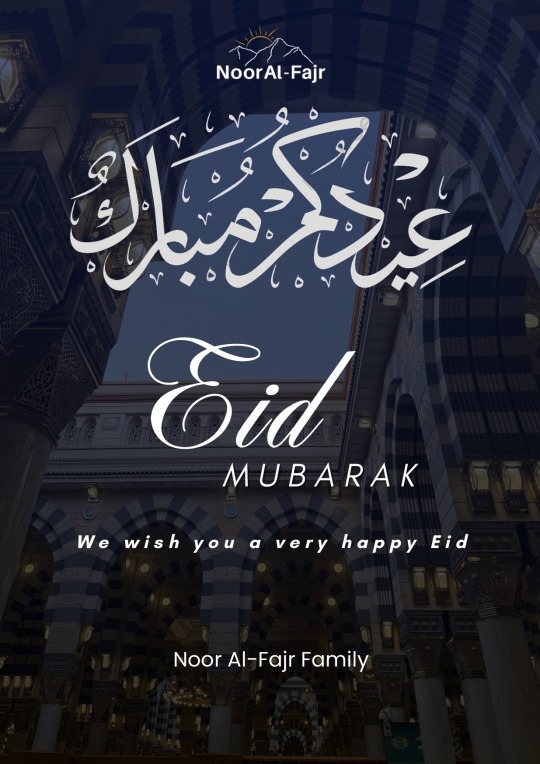
🌙 Eid Mubarak! 🌙
Wishing you and your families a joyous and blessed Eid! May this day bring you peace, happiness, and countless blessings. May your prayers be accepted, and may your hearts be filled with gratitude and joy.
For our dear Hujjaj, the journey ahead is truly special! After Eid, exciting things await as we move closer to Hajj 2025. Stay tuned for important updates, guidance, and preparations to make this journey smooth and memorable.
Eid Mubarak! 🎉✨ May Allah accept from us all!
ig: @nooral_fajr
#nooralfajr#islam#islamdaily#makkah#madinah#kaaba#hajj and umrah#hajj#hajj 2025#masjid nabawi#ramadan#eid gift#eid 2025#eid al fitr#eid mubarak#alhumdullilah#prayer#dua#like#please share#follow#reminder#islamicreminders#islampost#islamic
4 notes
·
View notes
Note
What are personal rights and freedoms (rights of immunity / human rights) in Islam? Will you give information regarding the issue?
According to Islamic belief, man is a being equipped with perfect mental, bodily, ethical and spiritual faculties and abilities. Man is born sinless and clean, in a way that is suitable for all kinds of material and spiritual elevation. He is the most beautiful creature in terms of his outward appearance and inner world. The following is stated in the Quran:
“We have indeed created man in the best of molds.”
Therefore, respect to man and service to individuals need to be accepted as basic philosophy and will. For, man is an official and vicegerent of Allah on earth. This specialty of him is stated as follows:
"Behold, thy Lord said to the angels: ‘I will create a vicegerent on earth.’"
According to Islam, every human being is a slave of Allah. All human beings without exception have natural rights. However, those rights are his inborn rights due to becoming a human being. All human beings are like the members of one family. Nobility does not originate from birth but from ethical virtues and devotion to rights and duties. All human beings have equal rights no matter what race, class, profession or rank they have. Thus, every individual will regard others as members of the same family and treat them accordingly. No individual can be deprived of his natural rights due to the class, profession, race or gender he belongs to.
According to Islam, all people are equal in the face of law. A Muslim is no different from a non-Muslim as long as he fulfills his duties toward the state.
Consequently, man is a slave of Allah and a nice trust of Him whether he is a believer or not. Therefore, man has honor and he deserves respect. It is the basic philosophy of Islam not to see any differences among people in terms of being human and to regard them as beings that have equal rights, duties and values.
Farewell Sermon is regarded as one of the most important sources of Islam in terms of human rights. As it is known, Farewell Sermon is the name given to the sermons the Prophet (pbuh) delivered during Farewell Hajj in Makkah, where he went for hajj, in the 10th year of the Migration. Farewell Sermon is not only the sermon delivered in Arafat on the day of Arafah (Dhul-Hijjah 10) but also the one delivered in Mina on the second day of eid. The famous one among them is the one delivered in Arafat, addressing a congregation consisting of more than 140.000 people, men and women. This sermon summarizes man’s rights and duties as a basic law. Since the Prophet (pbuh) passed away three months after this sermon, it is his real will.
Before the Prophet (pbuh) started his sermon before such a crowded congregation, he ensured silence through Jarir b. Abdillah and Rabia b. Umayya, one of the Companions, appointed criers who repeated the speech of the Prophet sentence by sentence, enabling the sentences to reach everybody; which technically means using loudspeakers.
Now, we will quote some of the sentences from this important and universal speech, which is recorded as “Farewell Sermon” in the history of Islam and will try to explain the issues it contains:
”Praise and thanks be to Allah! We praise him, ask for His help, want from Him and turn to Him. We take refuge in Allah from the evil of our souls and our bad deeds. If Allah misguides a person, nobody can guide him. I witness that there is no god but Allah, that He is one and that He has no partners. I also witness that Muhammad is His slave and messenger."
"O slaves of Allah! I advise you to fear Allah and encourage you to obey Him. Thus, I want to start my words with the best thing:"
"O People! Listen to what I explain to you. For I do not know whether, after this year, I shall ever be amongst you again."
" O People! Your blood (lives), wealth, honor and dignity are sacred up to the day when you meet your Lord, as this place (Makkah), this month (Dhul-Hijjah) and today are sacred. Be careful! Have I conveyed it to you? O Allah! Be my witness!"
" Return the goods entrusted to you to their rightful owners."
"The usury of the Era of Ignorance has been laid aside forever; your capital, however, is yours to keep. Thus, you will neither inflict nor suffer inequity. The first usury I abolish is the one that is due to my father’s brother, Abbas ibn Abdulmuttalib."
"Every right arising out of homicide (blood feud) in pre-Islamic days is henceforth waived, and the first such right I waive is that arising from the murder of my nephew, Amir Ibn Rabiah Ibn al-Harith."
"The customs of Era of Ignorance related the city of Makkah have been abolished except the duty of guarding the Kaaba and providing water to hajjis."
"O people! Satan has lost all hope that he will ever be able to lead you astray in big things, so beware of following him in small things."
"O people! I advise you to show respect to the rights of your women and fear Allah about them. You have certain rights with regard to your women, but they also have rights over you. Treat your women well and be kind to them, for they are under your protection. Fear Allah about women."
"O people! Every believer is the brother of another believer. Nothing shall be legitimate to a believer that belongs to a fellow believer unless it is given freely and willingly. Allah gave everybody their due (in the Quran)."
"Do not go astray after me and do not try to kill one another. I leave behind me two things, the Quran and my example, the Sunnah, and if you follow these you will never go astray."
"O people, your Lord is One, and your father is one: all of you are from Adam, and Adam was created from soil. The noblest of you in Allah’s sight is the most god-fearing. An Arab has no superiority over a non-Arab except taqwa."
After the sermon ended, the Prophet (pbuh) asked that tremendous congregation,
”O people! They will ask you about me tomorrow. What will you say?" The Companions said,
"We witness that you have conveyed the prophethood of Allah; you have fulfilled the duty of prophethood and that you have given us advice." The Prophet raised his index finger toward the sky and lowered it toward the congregation three times and said,
"O Lord! Be my witness! O Lord! Be my witness! Let those who are here convey my words to those who are not here.”
As it is seen, the Prophet (pbuh) started his sermon with the exclamation "Ayyuhannas (O people)!" after praising Allah. First, he attracted the attention of listeners and addressed the whole world.
This sermon is very important in that it mentions basic issues of Islam, and legal issues like the abolition of customs of Ignorance, equality, freedom, blood feuds, interest (usury), human rights, rights of wives and husbands in family law, will, lineage, fornication, debt and guarantee.
This sermon of the Prophet (pbuh) is not an ordinary sermon addressing only Muslims; it is a historical sermon involving humanity and a universal declaration of human rights.
The phrase "O people!" mentioned in 7-8 places and forming the paragraph openings in the sermon indicates the universal aspect of this sermon or declaration, that is, its inclusion of all people. For, this phrase aims to address not only the Muslims there but also non-Muslims, unbelievers, atheists, etc. who were not there. For, the word "nas (people)" is a general word containing all sane people whether a believer or unbeliever, Muslim or non-Muslim, who were present or absent. Therefore, that message was not specific to the people who were there that day; on the contrary, it was an open invitation to be conveyed to the whole world. The Prophet (pbuh) obtained a promise from the people there that they would accept the principles he declared and that they would convey them to others. He passed away three months later.
Hz. Prophet (pbuh) suggested some social reforms in this sermon. The exploitation of the poor by the rich was forbidden and the interest added to the loan was abolished. Husbands were ordered to treat their wives well since they are their partners and helpers; the differences of race and country were abolished completely.
An Arab has no superiority over a non-Arab because all humanity belongs to a single race actually. Besides, it is declared that lives, wealth, honor and dignity are sacred.
Hz. Prophet virtually summarized the religion of Islam in Farewell Sermon. Every issue took place in the triangle of Allah, man and other beings. People are regarded equal like the teeth of a comb. Immunity is provided for everything of man, his soul, life, wealth and thought. To sum up, this sermon introduced the rights of the people that they had lost.
Along with other issues, the following issues, which are of great importance in the life of individual and community, are emphasized in farewell Sermon:
1. Everybody’s life, wealth and honor are protected from transgression.
2. Nobody has the right to harm others.
3. All Muslims are brothers.
4. All debts will be paid but no extra amount (interest) will be paid in addition to the amount that has been borrowed.
5. Blood feuds and realizing justice personally are prohibited.
6. Women are life partners of men; therefore, they are ordered to be treated well; it is stated that women have the right to own wealth and property like men.
7. It is stated that people are equal irrespective of their race and color.
8. Deeds that harm family life like fornication are forbidden.
9. It is stated that the Quran was left as a trust to people and they are advised to adhere to it.
10. The calculation of days, months and years, which was a controversial issue among Arabs in the Era of Ignorance, were made clear; regarding some months halal and some months haram based on material interest and changing their places were prohibited; a year was determined to have twelve months. Besides, the sacredness of Makkah and places around it were pointed out.
11. It was emphasized that the entrusted things had to be returned to their owners.
The values Farewell Sermon added to human rights in terms of law are clear. It introduced certain religious, scientific, social, administrative, political and familial rights and duties. The importance of this sermon in terms of sociological history cannot be denied. The Prophet (pbuh) eliminated all of the customs and traditions of the Era of Ignorance in this sermon and declared his decrees about rights and duties, each of which was revolutionary.
On the day when this sermon was delivered, Islam addressed the world with its power and magnificence and stated that the Era of Ignorance ended with all of its dark sides and aberrations.
Thus, Farewell Sermon declared human rights to the whole world in 632; today, Westerners date human rights back to 1215, when the British accepted Magna Charta Libertatum (Great Freedom Contract). However, this contract includes certain rights between the king and Lords, who represented citizens, not between the king and citizens directly. Afterwards, human rights came to the fore with French Revolution in 1789 and the declaration of human rights was issued. Finally, Universal Declaration of Human Rights was issued by the United Nations in 1948. Even if the issue of human rights can be dated back to 1215, Farewell Sermon brought it forward in 632. Therefore, Farewell Sermon has a historical value.
Farewell Sermon is a document that affected the world of law, politics and administration of the future in many ways. Since Muslims regard the Prophet (pbuh) as a model in their lives, his traces are seen in every field. It is possible to see the examples of the sermon in legal, economic and political fields. If it is examined carefully, it will be seen that the political protocol / ordinance that Hz. Ali wrote and sent to Malik b. al-Harith al-Ashtar, the governor of Egypt, when he was the caliph, was inspired by Farewell Sermon of the Prophet (pbuh).
We wish to live in a world in which people respect the rights of one another and which is full of love.
#allah#revert#muslim#islam#quran#reverthelp#help#god#prayer#muslimah#new muslim#new to islam#new revert#new convert#reverthlpteam#revert to islam#convert to islam#how to convert to islam#dua#hijab#welcome to islam
3 notes
·
View notes
Text
The Life of The Prophet Muhammad(pbuh): The Battle of Badr and Afterwards
Some other important events of the 2nd Year of Hijrah
Fasting in Ramadan is Rendered Fard
Fasting in Ramadan was rendered fard one month after the qiblah was changed to the Kaaba and in the beginning of the 18th month after Hijrah, in the month of Saban. The following were stated in the verses regarding fasting:
“O ye who believe! fasting is prescribed to you as it was prescribed to those before you that ye may (learn) self-restraint…
Ramadan is the (month) in which was sent down the Qur'an as a guide to mankind also clear (Signs) for guidance and judgment (between right and wrong).
So everyone of you who is present (at his home) during that month should spent it in fasting, but if anyone is ill, or on a journey, the prescribed period (should be made up) by days later.
Allah intends every facility for you He does not want to put you to difficulties. (He wants you) to complete the prescribed period, and to glorify Him in that He has guided you; and perchance ye shall be grateful!”
Fasting in Ramadan is one of the five pillars of Islam.
Ibn Umar (may Allah be pleased with him) reported that the Messenger of Allah stated the following:
“Islam is based on five things: testifying that there is no god but Allah and that Muhammad is His Messenger, establishing the prayer (salah); paying the zakah (wealth-tax), performing the Hajj and fast in Ramadan.”
Sadaqa al-Fitr is Rendered Wajib
Toward the end of the month of Ramadan of the same year, sadaqa al-fitr was rendered wajib.
The Messenger of Allah ordered that every rich Muslim, whether young or old, free or slave, male or female, give one sa’ (1040 dirhams) of dry dates or one sa’ of barley or raisin, or one mud (half a sa’) of wheat to the poor before the prayer of eid.
The First Eid Prayer is Performed
When the crescent of Shawwal was seen and when the sun rose in the morning, the Messenger of Allah ordered Muslims to break their fasts and to go to the open praying area for the eid prayer. Then he went to the open praying area and led the eid prayer there before the khutbah (sermon) and without adhan or iqamah.
When the Messenger of Allah honored Madinah, the people of Madinah had two festival days. The Prophet said to them, “Allah gave you two better festival days: eid al-fitr (Ramadan Festival) and eid al-adha (Sacrifice Festival).”
The Messenger of Allah always performed eid prayers in the open praying area. The open praying area of Madinah was at the east gate of the city of Madinah.
The Prophet always walked to the open praying area. He went to the open praying area from one way and returned from another way. He always ate something before he set off for the prayer of eid al-fitr. He generally ate a few dates.
Zakah is Rendered Fard
Zakah was rendered fard in the 2nd year of Hijrah after the fasting of Ramadan was rendered fard and sadaqa al-fitr was rendered wajib.
Zakah is a financial kind of worshipping for rich Muslims that involves giving a certain amount of their goods, property or money to the poor every year.
Zakah is one of the five pillars of Islam. It was ordered in the Quran: (an-Nur, 56; al-Muzzammil, 20; al-Hajj, 78; al-Baqara, 110). It is mentioned in 32 places in the Quran together with prayer (salah)
The Prophet stated the following in a hadith:
“Every day in the morning, two angels come down and one of them says, ‘O my Lord! Give to those who give zakah and sadaqa and spend their property for the sake of Allah the amount that they spend’. The other one says, ‘O my Lord! Destroy the property of those who do not give zakah or sadaqa!”
Death of Hazrat Ruqayya
Hazrat Ruqayya, the daughter of the Prophet who was married to Hazrat Uthman, became ill during the Expedition of Badr. Hazrat Uthman stayed in Madinah to look after her upon the order of the Prophet. He could not go to Badr. When Zayd b. Haritha brought the news of the Victory of Badr to Madinah, Hazrat Ruqayya had died.
Umm Ayman washed her dead body. Hazrat Uthman led her janazah prayer and buried her in the cemetery of al-Baqi.
Hazrat Ruqayya was born after Hazrat Zaynab when the Messenger of Allah was 33 years old. She became a Muslim together with Hazrat Khadija, her mother. Then, she married Hazrat Uthman. Hazrat Uthman migrated to Abyssinia with her. When the Messenger of Allah saw that they were migrating together, he said, “After Lot (pbuh), Uthman is the first person to migrate in the way of Allah with his family.”
Abu Darda Becomes a Muslim
Abu Darda Uwaymir b. Sa’laba became a Muslim during the Expedition of Badr.
Abdullah b. Rawaha (may Allah be pleased with him) was an intimate friend of Abu Darda. One day, Abdullah took an adze and broke the idol in Abu Darda’s house. When Abu Darda returned home, his wife told him about it. Abu Darda started to think and said to himself, “If this idol had been useful, it would have protected itself!” Then, he went to the Prophet to become a Muslim.
When Abdullah b. Rawaha saw him coming from a distance, he said, “O Messenger of Allah! Abu Darda is coming. He is probably coming here to see us!”
The Messenger of Allah said, “He is coming here to become a Muslim. My Lord had informed me beforehand that Abu Darda would be a Muslim!”
When Abu Darda went to the presence of the Prophet, he became a Muslim. His family had embraced Islam before him.
Hazrat Fatima Marries Hazrat Ali
Hazrat Fatima married Hazrat Ali five months after the Messenger of Allah honored Madinah in the month of Rajab. Their wedding was in the month of Dhul-Hijjah in the 2nd year of Hijrah after the Battle of Badr.
Hazrat Fatima was the youngest and his most beloved daughter. Whenever the Prophet returned from a battle or expedition, he went to the mosque first to perform a prayer of two rak’ahs and then he went to Hazrat Fatima; after that, he went to his wives.
Hazrat Aisha (may Allah be pleased with her) narrates:
“I have never seen anyone whose words and speech resemble those of the Messenger of Allah. When Fatima came, the Messenger of Allah would welcome her with compassion and greet her by saying, “Welcome!” I have never seen anyone more straightforward than Fatima.”
The walking style of Fatima (may Allah be pleased with her) resembled that of the Prophet a lot.
Once, Hazrat Aisha was asked, “Who was the most beloved person for the Prophet?”
Hazrat Aisha answered, “Fatima”
When she was asked, “Who was the most beloved man for the Prophet?”, she answered, “Fatima’s husband.
The Prophet Sends Someone to Makkah to Bring his Daughter Hazrat Zaynab
Among the captives of Badr was Abu As b. Rabi, the husband of Hazrat Zaynab and the son-in-law of the Prophet. As we mentioned under the topic of the captives of the Battle of Badr, Abu As went to Makkah when he was released. Abu As had prevented Hazrat Zaynab from migrating before; however, this time he let her go.
The Messenger of Allah sent Zayd b. Haritha and somebody from Ansar to Makkah a month or less than a month after the Battle of Badr and they brought Hazrat Zaynab.
Death of Uthman b. Maz’un, from Muhajir Muslims
He is the first muhajir Muslim buried in the cemetery of al-Baqi.
The first Eid al-Adha Prayer is Performed
The Messenger of Allah reached Madinah on the ninth of the month Dhul-Hijjah from the Expedition of Sawiq. The next day, that is, the tenth of Dhul-Hijjah, he went to the open praying area with Muslims. He led the two-rak’ah eid al-adha prayer without adhan or iqamah. He recited a sermon after the prayer. In the sermon, he ordered Muslims to sacrifice animals. He himself sacrificed two animals. While slaughtering one of the fleshy white rams, he said, “O Allah! This is on behalf of my ummah, who witness your oneness and what came to me from you.” While slaughtering the second one, he said, “O Allah! This is for Muhammad and the household of Mu¬hammad. He himself, his household and the poor ate from the meat of the second ram.
That was the first eid al-adha in Islam!
#allah#muslim#convert#revert islam#revert help#converthelp#muslimah#reverthelp#hijab#new muslim#new convert#how to convert to islam#convert to islam#welcome to islam#god#islam#quran#revert#convert islam#revert help team#help#islamhelp#prayer#salah#reminder#pray#dua#muhammed#new revert
4 notes
·
View notes
Text
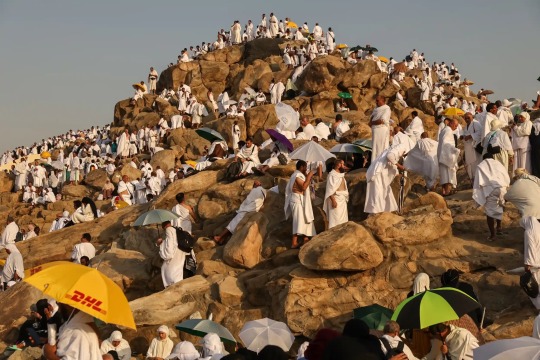
Hajj 2024, Saudi Arabia 🇸🇦! Mount Arafat, Saudi Arabia. Muslim pilgrims pray at dawn on Mount Arafat, also known as Jabal al-Rahma or Mount of Mercy, during the climax of the hajj pilgrimage. The death toll from this year’s hajj exceeded 1,000, with more than half of the victims unregistered worshippers who performed the pilgrimage in extreme heat. Photograph: Fadel Senna/AFP/Getty Images
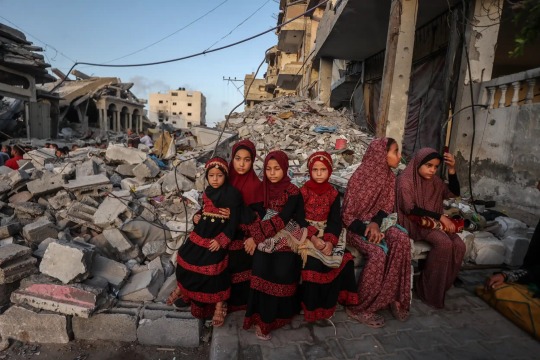
Khan Younis, Gaza, Forever Palestine 🇵🇸! Palestinians gather to perform Eid al-Adha prayer among the rubble of buildings destroyed by the Terrorist, Fascist, Genocidal, War Criminal Isra-helli 🐖 🐷 🐖 🐗 Forces. Photograph: Ali Jadallah/Anadolu/Getty Images
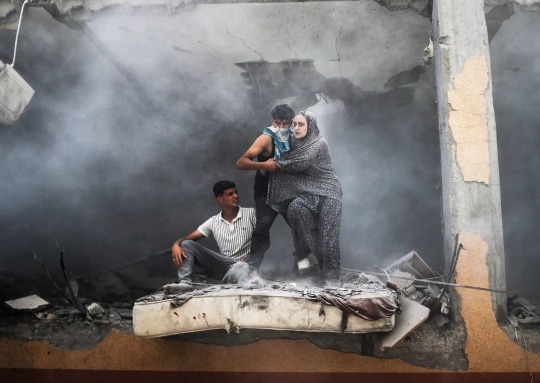
Deir al-Balah, Gaza, Forever Palestine 🇵🇸! Palestinians walk out of a building after an Isra-helli attack on the Abu Aisha family house. Photograph: Ali Jadallah/Anadolu/Getty Images
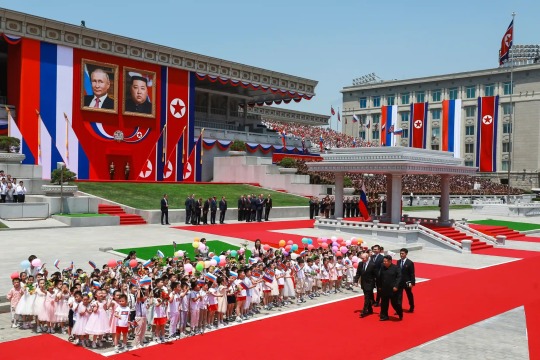
Pyongyang, North Korea 🇰🇵, The American Nightmare! The Russian 🇷🇺 President, Vladimir Putin, and North Korea’s Leader, Kim Jong-un, attend the official welcome ceremony at Kim Il-sung Square. In his first visit to the reclusive country since 2000, the Russian president flew to Pyongyang to be greeted by huge welcome banners, cheering crowds and Russian flags. Photograph: Vladimir Smirnov/Sputnik/AP
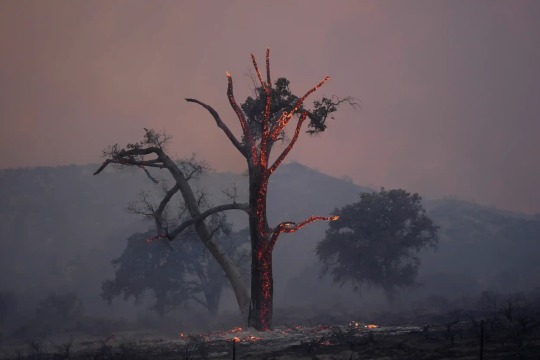
California, USA 🇺🇸! A tree continues to burn after the Post fire swept through Lebec. Firefighters in California battled blazes in challenging conditions after several wildfires broke out. Photograph: Marcio José Sánchez/AP
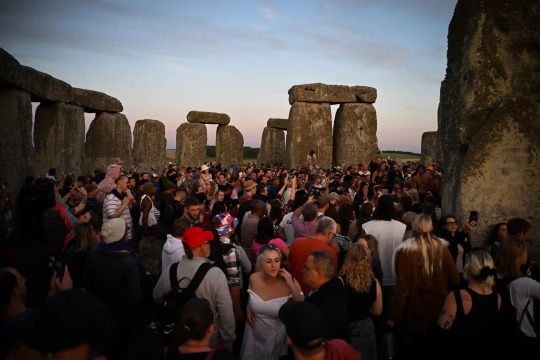
Stonehenge, UK 🇬🇧! People gather in the centre of Stonehenge. About 15,000 people greeted the sun with cheers, smiles and prayers as it rose over Stonehenge for the summer solstice, days after the ancient monument was sprayed with orange paint. Photograph: Finnbarr Webster/Getty Images
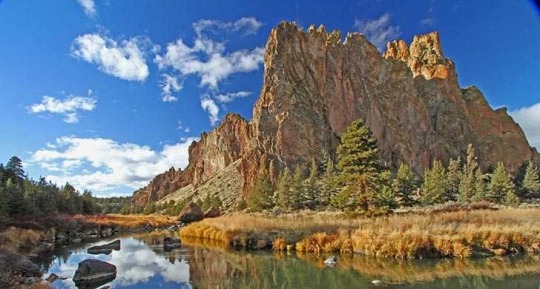
#Around the Globe 🌎#Miscellaneous Photographs#Saudi Arabia 🇸🇦#Forever Palestine 🇵🇸#War Criminal United States 🇺🇸#North Korea 🇰🇵#Russian President Vladimir Putin 🇷🇺#United Kingdom 🇬🇧
2 notes
·
View notes
Note
hihi!!!! :D how are Eid preparations going so far? :)
hi!! honestly, not much. my parents are not in the country (they're on Hajj) so it's just me, my siblings and my grandmas at home. plus i can't take the day off for Eid on Monday because my attendance is already low (93%) and my tutor's lectured me about it </3 so i'll probably have to go into college and then i also have an exam the day after...
hopefully it'll still be nice!! but yeah as far as i know, not much prep going on since i've got other work to do with my parents not around rn
4 notes
·
View notes
Text
Dozens of people have stormed the compound of the Swedish embassy in Iraq's capital, Baghdad, after a Quran was burnt during a protest in Sweden.
Salwan Momika, said to be an Iraqi living in Sweden, set fire to a copy of Islam's holy book outside Stockholm's central mosque on Wednesday.
The Quran burning was condemned by many Muslim-majority countries.
A crowd gathered outside the embassy in Baghdad on Thursday after a powerful cleric called for an "angry" protest.
Videos posted on social media appeared to show dozens of protesters walking inside the courtyard.
An AFP news agency photographer at the scene said the crowd briefly entered the building and remained inside for about 15 minutes before leaving when local security forces were deployed.
Muslims consider the Quran the sacred word of God and view any intentional damage or show of disrespect towards it as deeply offensive.
The Quran burning on Wednesday took place as Muslims around the world celebrated the first day of Eid al-Adha, one of the most important festivals in the Muslim calendar.
Swedish police had given Mr Momika a permit for the protest, in accordance with free-speech laws. But later police said the incident was being investigated for incitement of hatred.
The incident has also sparked anger in other Muslim-majority nations including Turkey - a Nato member which has a say over whether Sweden also gains membership.
Turkey - which was also angered by a Quran burning protest earlier this year - said it was "unacceptable" to allow such "anti-Islamic actions" to take place "under the pretext of freedom of expression".
President Recep Tayyip Erdogan said: "We will eventually teach the arrogant Westerners that insulting Muslims is not freedom of thought."
Middle Eastern nations including Iraq, Iran, Saudi Arabia and Egypt strongly criticised the burning.
Morocco and Jordan have recalled their ambassadors to Stockholm, and Morocco has also summoned Sweden's charge d'affaires in Rabat.
Iraq said the incident was "a reflection of a hateful aggressive spirit that has nothing to do with freedom of expression."
Iran echoed Iraq's criticism, calling the act of burning the Quran "provocative" and "unacceptable", while Egypt described it as a "shameful" act which was especially provocative as Muslims mark Eid al-Adha.
Saudi Arabia - the destination of around 1.8m worshippers on the annual Hajj pilgrimage this week - said "these hateful and repeated acts cannot be accepted with any justification."
Sweden's Prime Minister Ulf Kristersson said the Quran burning was "legal but not appropriate".
Plans to burn copies of the Quran have sparked riots in Sweden in recent months.
Police had rejected similar protest applications recently, but courts then ruled that they should be allowed on freedom of expression grounds.
#nunyas news#western nations should start responding the same way#burn a bible flag effigy whatever#protests and condemnation incoming
13 notes
·
View notes
Text
Hajj and Umrah: Understanding the Distinctions
Hajj and Umrah are two significant Islamic pilgrimages that hold immense spiritual importance for Muslims worldwide. While both involve visiting the holy city of Mecca and performing specific rituals, there are distinct differences between the two. In this article, we will explore and highlight the disparities between Hajj and Umrah, shedding light on their rituals, significance, and timing.
Definition and Purpose:
Hajj, often referred to as the "greater pilgrimage," is an obligatory pilgrimage that every physically and financially capable Muslim is required to undertake at least once in their lifetime. It is one of the Five Pillars of Islam and carries deep religious significance. The purpose of Hajj is to follow in the footsteps of the Prophet Muhammad and Prophet Ibrahim, commemorate their acts of devotion, and seek forgiveness and blessings from Allah.
On the other hand, Umrah, known as the "lesser pilgrimage," is a voluntary act of worship that can be performed at any time of the year. While it is highly recommended, it is not obligatory like Hajj. Umrah serves as a means of gaining spiritual rewards and seeking closeness to Allah. It is a shorter and less intricate pilgrimage compared to Hajj.
Timing and Duration:
Hajj has a fixed time and occurs during the Islamic month of Dhul-Hijjah. It begins on the 8th of Dhul-Hijjah and concludes on the 13th of the same month. The rituals of Hajj are performed within this specific time frame, and it culminates with the celebration of Eid al-Adha, the Festival of Sacrifice.
On the contrary, Umrah can be performed at any time of the year, except for the designated days of Hajj. There are no specific restrictions on the timing or duration of Umrah. It can be completed in a few hours or days, depending on the pilgrim's preference and schedule.
Rituals:
The rituals of Hajj and Umrah share some similarities but also have distinct differences. Let's explore the key rituals of each pilgrimage:
a. Hajj Rituals:
Hajj consists of several essential rituals, including:
Ihram: Pilgrims enter the state of ihram by donning the prescribed clothing (white, seamless garments for men) and observing specific restrictions.
Tawaf: Pilgrims perform Tawaf, which involves circling the Kaaba seven times in a counterclockwise direction.
Sa'i: After Tawaf, pilgrims perform Sa'i, walking seven times between the hills of Safa and Marwah.
Wuquf in Arafah: On the 9th day of Dhul-Hijjah, pilgrims gather in the plain of Arafah, engage in supplication, and seek forgiveness from Allah.
Muzdalifah: After sunset, pilgrims move to Muzdalifah, spend the night there, and collect pebbles for the next ritual.
Stoning of the Devil: Pilgrims stone the three pillars in Mina, symbolizing the rejection of evil.
Sacrifice (Qurbani): A sacrificial animal is offered to commemorate the willingness of Prophet Ibrahim to sacrifice his son.
Halq or Taqseer: Pilgrims shave their heads completely or trim their hair to mark the completion of Hajj rituals.
Tawaf al-Ifadah: Pilgrims return to the Kaaba to perform Tawaf al-Ifadah, which signifies the completion of Hajj.
Sa'i of Hajj: After Tawaf, pilgrims perform Sa'i between Safa and Marwah once again.
b. Umrah Rituals:
Umrah consists of the following rituals:
Ihram: Like Hajj, pilgrims enter the state of ihram by wearing the prescribed clothing and adhering to the associated restrictions.
Tawaf: Pilgrims perform Tawaf, circling the Kaaba seven times in a counterclockwise direction.
Sa'i: After Tawaf, pilgrims perform Sa'i, walking between Safa and Marwah seven times.
Halq or Taqseer: Similar to Hajj, pilgrims shave their heads completely or trim their hair, marking the completion of Umrah.
Significance and Reward:
Both Hajj and Umrah carry immense spiritual rewards and blessings. However, due to its obligatory nature, Hajj holds a higher degree of significance in Islam. It is considered a purification of the soul, an opportunity for seeking forgiveness, and an occasion to strengthen one's relationship with Allah. The completion of Hajj earns a pilgrim the title of "Hajji" or "Hajjah."
Umrah, although voluntary, is also highly regarded in Islam. It provides an opportunity for Muslims to seek closeness to Allah, engage in acts of worship, and experience the serenity of the holy sites. Performing Umrah carries spiritual rewards and is believed to expiate sins.
In conclusion, Hajj and Umrah are distinct Islamic pilgrimages, each with its own significance, timing, and rituals. Hajj is obligatory and takes place during a specific time frame, while Umrah is voluntary and can be performed at any time except during Hajj. Both pilgrimages offer spiritual benefits, allowing Muslims to strengthen their faith, seek forgiveness, and gain proximity to Allah. Whether one undertakes Hajj or Umrah, the experience is undoubtedly a profound and transformative journey.
For more information visit: https://www.talbiyaumrah.com/
2 notes
·
View notes
Text
Buy Classic White Thobe for Men – Purity, Comfort & Style

The White Thobe – A Timeless Symbol of Modesty and Grace
Among all thobe styles and colors, the white thobe holds a special place in the hearts of men who value tradition, spirituality, and simplicity. It’s more than just an outfit—it’s a reflection of faith, cleanliness, and cultural identity. At Al Khatib Store, our white thobes are crafted to meet the highest standards of comfort and quality, while staying true to the classic look that never goes out of style.
Whether you're preparing for Jummah, Eid, Hajj, or just seeking modest everyday wear, our collection of white thobes is ideal for every moment that matters.
Why White is the Most Preferred Thobe Color
White is not just visually appealing—it also carries deep meaning in many cultures and religions. In Islamic tradition, it is considered the most beloved color by the Prophet Muhammad ﷺ. That’s why it remains the top choice for prayer, religious ceremonies, and formal gatherings.
Benefits of a White Thobe:
Symbol of spiritual purity and peace
Keeps the body cool in hot weather
Easy to accessorize with any scarf, cap, or footwear
Appropriate for all occasions—religious or social
Universally flattering on every skin tone
At Al Khatib Store, our white thobes come in a variety of styles and cuts to suit every taste and body type.
Made for Comfort – All Day, Every Day
Our white thobes are designed with breathability and movement in mind. Whether you’re offering salah, travelling, or running errands, your thobe should feel comfortable—never restrictive.
Key Features:
Lightweight fabric for ventilation
Soft inner lining in selected styles
Durable stitching to maintain shape
Available in cotton, poly-cotton, and blended fabrics
Loose or regular fit options available
The fabric is carefully selected to ensure that your thobe doesn’t become see-through, while still remaining airy and soft on the skin.
Styles to Match Every Preference
While the traditional white thobe is minimal and clean, we offer a variety of options to suit your personal taste.
Our White Thobe Styles Include:
Plain White Thobes – Simple and spiritual, perfect for daily wear
Collared White Thobes – Shirt-style collar for a smart-casual look
Mandarin Collar Thobes – Classic neckline with a traditional touch
Zip-Up and Button-Down Designs – Easy to wear and remove
Contrast Stitch or Embroidered Designs – Add a modern edge while staying modest
With sizes from S to 4XL, you'll find a fit that complements your height, build, and preferences.
Perfect for Spiritual Journeys and Sacred Events
Planning to perform Umrah or Hajj? The white thobe is your go-to option. Many pilgrims choose our premium white thobes because of their breathability and comfort during long walks and hot climates.
They're also a top pick for:
Friday prayers (Jummah)
Ramadan Taraweeh nights
Eid celebrations
Nikah ceremonies and Islamic events
Plus, our wrinkle-resistant options ensure you look clean and presentable even after hours of wear.
Easy to Maintain, Long-Lasting Quality
Wearing white often makes people worry about stains or fading—but Al Khatib’s thobes are made for real life.
Care Instructions:
Machine-washable on gentle cycles
Quick-dry and easy to iron
Anti-shrink and color-retention fabric
Reinforced seams for lasting durability
We also offer travel-friendly white thobes that are easy to pack, don’t crease easily, and dry quickly after a wash—ideal for Umrah or vacation trips.
Trusted by Hundreds of Men Across India
Here’s what our customers say about our white thobes:
“This is the best white thobe I’ve worn in years. The fabric is light but not transparent, and it stays fresh even after long hours in the sun.” – Furqan S., Pune
“I wore Al Khatib’s white thobe during my Nikah and I was complimented all day. It’s elegant without being overdone.” – Mohammed A., Chennai
“Good value, excellent stitching, and the perfect fit for prayer and daily wear.” – Shoaib R., Bengaluru
White Thobes for Gifting & Group Orders
Need matching white thobes for your family, friends, or community group? We provide bulk discounts and gift-packaging options for:
Wedding parties
Eid gifting
Religious tours
Mosque events
With high-quality fabric and uniform stitching, group orders are delivered on time with consistent sizing and attention to detail.
Explore the Al Khatib Difference
What sets us apart is our commitment to quality, service, and value. Every white thobe is designed with the modern man in mind—someone who values his culture, respects tradition, and still enjoys looking sharp.
Why Buy from Us?
✅ Premium tailoring and fabric
✅ Detailed product descriptions and size guides
✅ Excellent customer support
✅ Fast delivery across India
✅ Secure online shopping experience
From your first order to your next, we aim to provide a smooth and satisfying shopping journey.
Conclusion
A white thobe is more than just a color choice—it’s a timeless piece of Islamic clothing that reflects inner cleanliness, outer elegance, and spiritual depth. At Al Khatib Store, you’ll find white thobes that are practical, high-quality, and beautifully tailored for every occasion—from Jummah to joyous celebrations.
Explore our range today and discover why so many men across India choose Al Khatib for their modestwear essentials.
Contact Us
Questions about sizing or fabric? Need help placing a group order?
#modern thobes#clothing#traditional clothing#men's thobes#clothing brand#fashion#alkhatibstore#clothing store#mensthobe#saudithobe
0 notes
Text
for Kids: Nurturing Faith, Knowledge, and Good Character from an Early Age
As children grow, their environment, education, and role models shape who they become. For Muslim families, it’s essential to ensure that children are not only academically successful but also grounded in faith and values. This is where Islamic Classes for Kids play a crucial role. These classes are designed to instill love for Islam, knowledge of the religion, and strong moral character in a fun, engaging, and age-appropriate way.
What Are Islamic Classes for Kids?
Islamic Classes for Kids are specially tailored lessons that introduce children to the core teachings of Islam. These classes usually include a combination of Qur’an recitation, Islamic studies, duas (supplications), and character-building lessons. The aim is to help children understand and practice their religion in a way that is both meaningful and enjoyable.
Why Islamic Classes Matter for Children
Here’s why Islamic Classes for Kids are a valuable part of your child’s upbringing:
🌱 Early Faith Development Children are naturally curious and open to learning. Introducing them to Islamic values early helps build a strong connection with Allah.
💬 Understanding of Islamic Principles Kids learn the five pillars of Islam, stories of the prophets, and basic fiqh (Islamic rulings) in a simplified and relatable way.
🕋 Learning the Qur’an From recognizing Arabic letters to reciting short Surahs with Tajweed, Islamic classes often include structured Qur’an lessons.
🌟 Building Good Character (Akhlaq) Manners, honesty, kindness, and respect are taught as part of daily life, following the example of Prophet Muhammad ﷺ.
🧕 Islamic Identity and Confidence Especially for children growing up in non-Muslim countries, Islamic classes help them feel proud of their faith and identity.
What’s Taught in Islamic Classes for Kids?
A good Islamic Classes for Kids program typically includes:
Qur’an Reading and Memorization Learning how to read the Qur’an with proper pronunciation and memorizing short Surahs.
Islamic Beliefs (Aqidah) Understanding who Allah is, the role of the Prophets, and the basics of Islamic belief.
Prophet Stories Lessons from the lives of the Prophets to inspire and teach moral values.
Islamic Manners and Etiquette Saying Bismillah before eating, greeting others with salaam, being kind to parents and elders.
Daily Duas Simple prayers for waking up, sleeping, entering the bathroom, eating, and more.
Islamic Calendar and Events Learning about Ramadan, Eid, Hajj, and other important Islamic occasions.
Interactive Activities Games, crafts, role-plays, and quizzes to make learning fun and memorable.
Formats Available for Islamic Classes for Kids
You can find Islamic Classes for Kids in a variety of flexible formats:
🕌 Weekend and After-School Madrasas: Often held at local mosques or community centers.
💻 Online Islamic Classes: Convenient for busy families and ideal for remote learning with certified instructors.
👨🏫 Private Tutoring: Personalized attention to focus on your child’s specific needs.
🎨 Islamic Activity Clubs: Combine education with arts, crafts, and social time in an Islamic environment.
What Makes a Good Islamic Class?
When choosing Islamic Classes for Kids, look for:
✅ Qualified, Child-Friendly Teachers
✅ Interactive and Age-Appropriate Curriculum
✅ Safe and Welcoming Learning Environment
✅ Regular Communication with Parents
✅ Balance of Knowledge and Practical Application
Who Can Join?
Islamic Classes for Kids are suitable for:
Children as young as 3 or 4 years old
Beginners with no prior Islamic education
Children attending public schools who need supplementary Islamic learning
Kids preparing for Qur’an competitions, Ramadan programs, or Islamic school entrance
Final Thoughts
Islamic Classes for Kids provide a beautiful opportunity to plant the seeds of faith, knowledge, and character in your child’s heart. These classes are more than just lessons—they are investments in your child's future, both in this life and the hereafter. Whether you're looking for weekend classes, online learning, or full Islamic schooling, giving your child access to proper Islamic education is a decision you will never regret.
0 notes
Text
Fazaile Amal is a reliable holy book of Muslims which has been prepared by taking evidence of selected Hadiths from Hadiths. Hadith is second in importance for Muslims after the Holy Quran. There is a chapter in Fazaile Amal, Fazaile Zikr. Its verses no. 1, 2, 3, 6 and 7 glorify Kabir Allah.
#आओ_जानें_अल्लाह_का_नाम
#BaakhabarSantRampalJi
#islam #muslimah #hajj #makkah #eid #eidmubarak #allahuakbar #madina
#viralshorts #reelkarofeelkaro #exploremore #instagood #imamali #karbala
#SantRampalJiMaharaj
To know with proof, you must read the book
"Muslman Nhi samjhe Gyan Kuran"
0 notes
Text
Fazaile Amal is a reliable holy book of Muslims which has been prepared by taking evidence of selected Hadiths from Hadiths. Hadith is second in importance for Muslims after the Holy Quran. There is a chapter in Fazaile Amal, Fazaile Zikr. Its verses no. 1, 2, 3, 6 and 7 glorify Kabir Allah.
#आओ_जानें_अल्लाह_का_नाम
#BaakhabarSantRampalJi
#islam #muslimah #hajj #makkah #eid #eidmubarak #allahuakbar #madina
#viralshorts #reelkarofeelkaro #exploremore #instagood #imamali #karbala
#SantRampalJiMaharaj
To know with proof, you must read the book
"Muslman Nhi samjhe Gyan Kuran"
0 notes